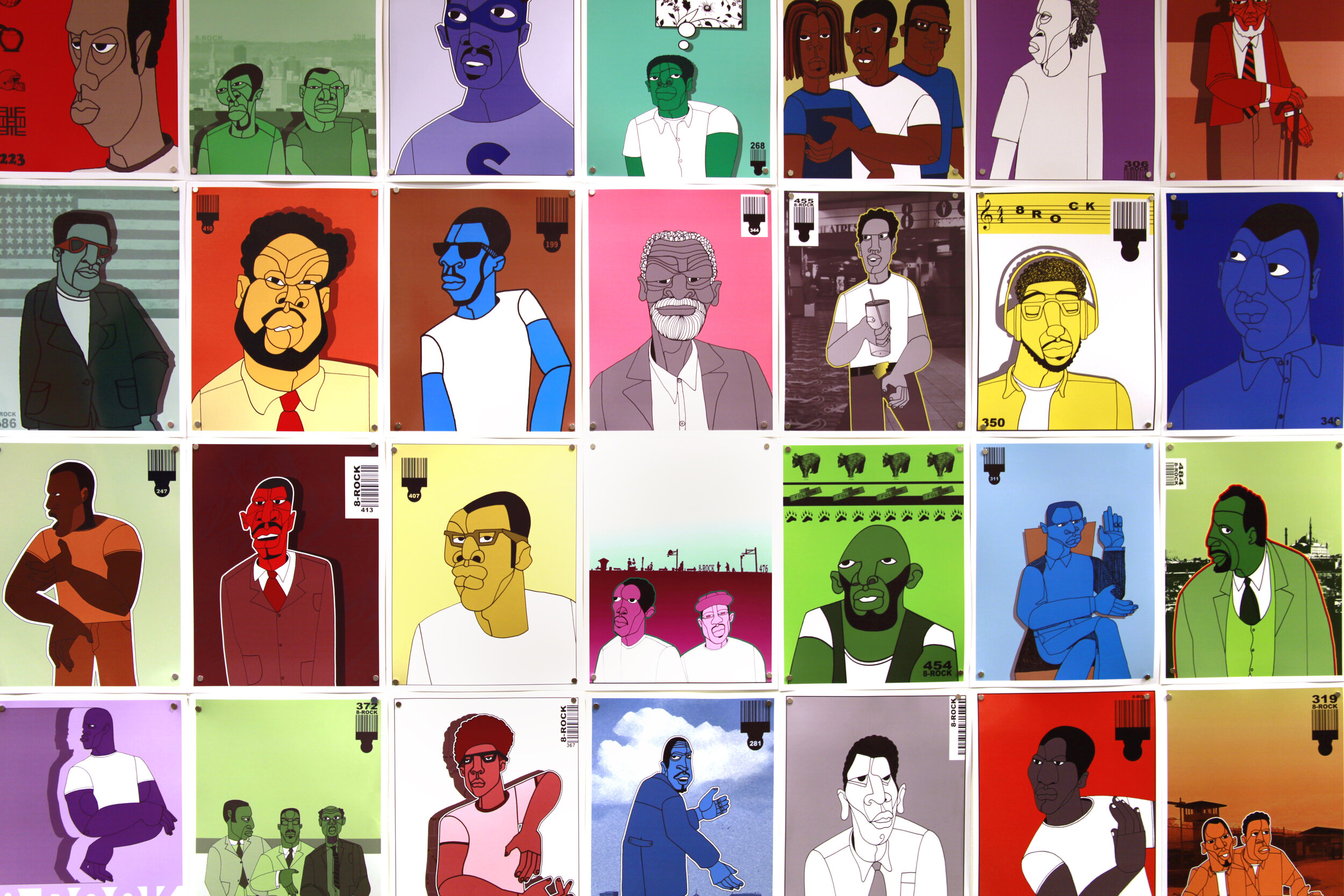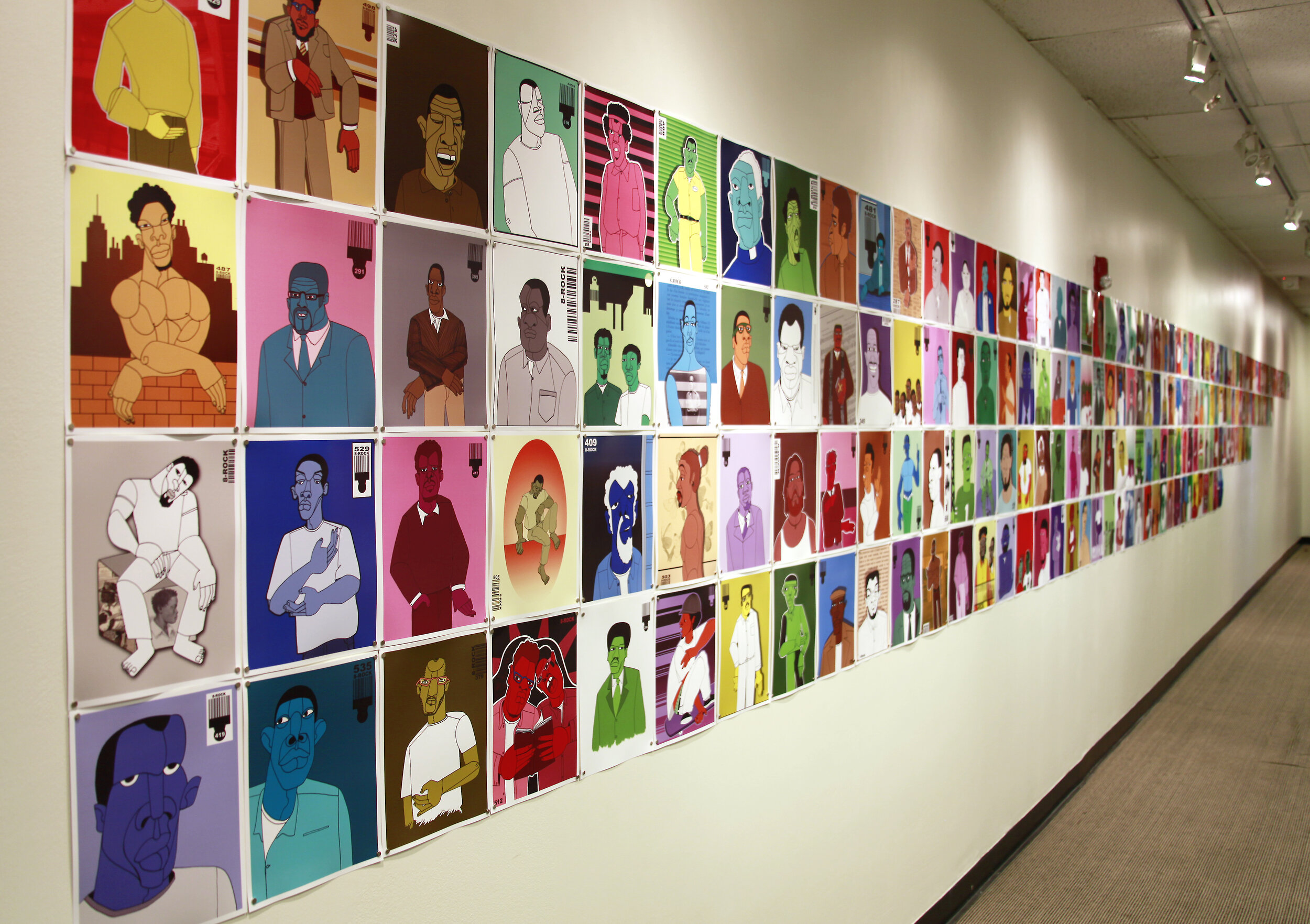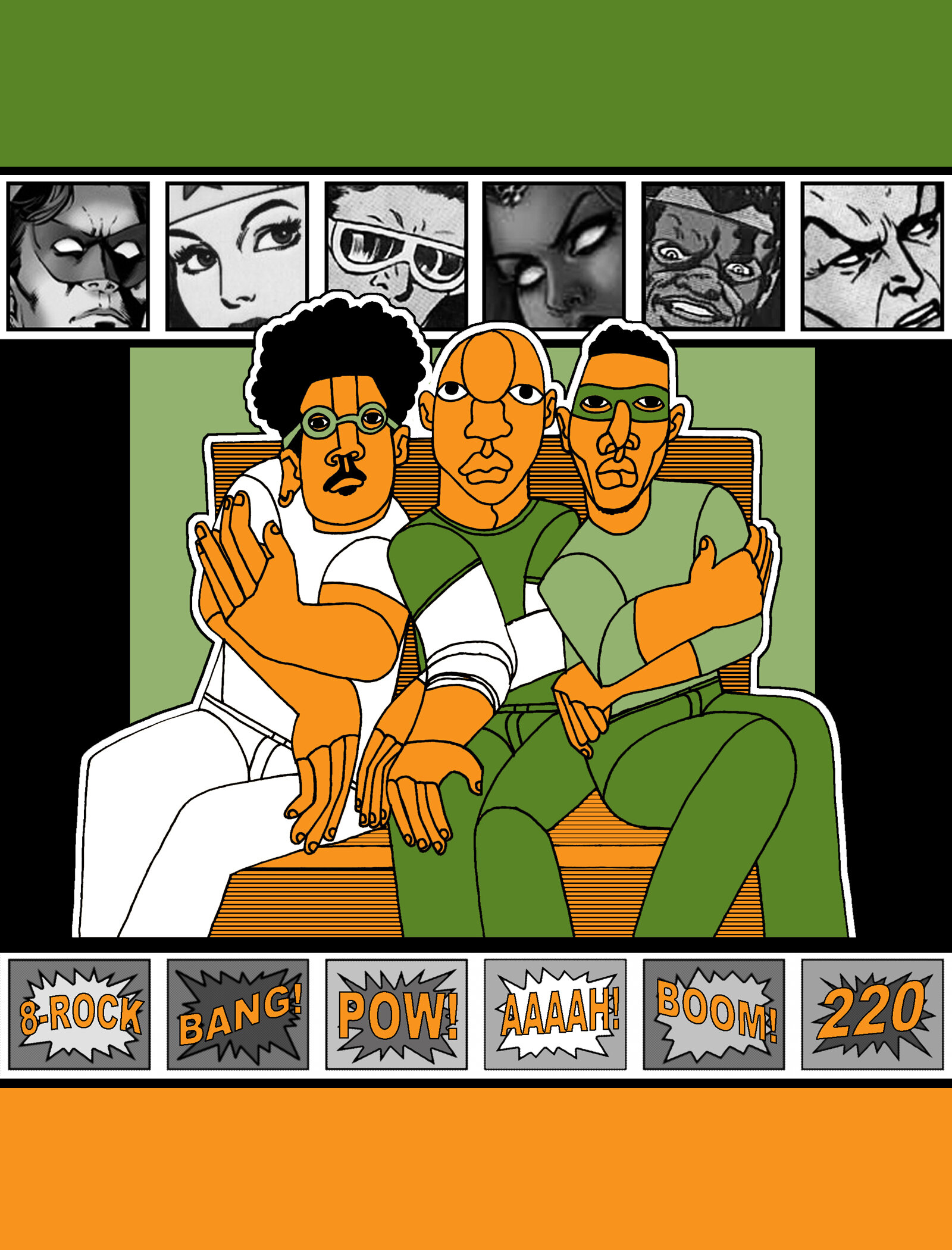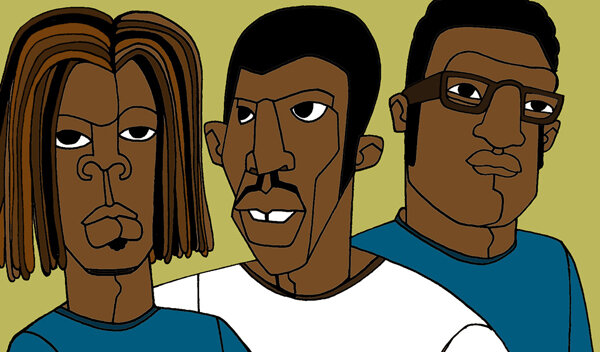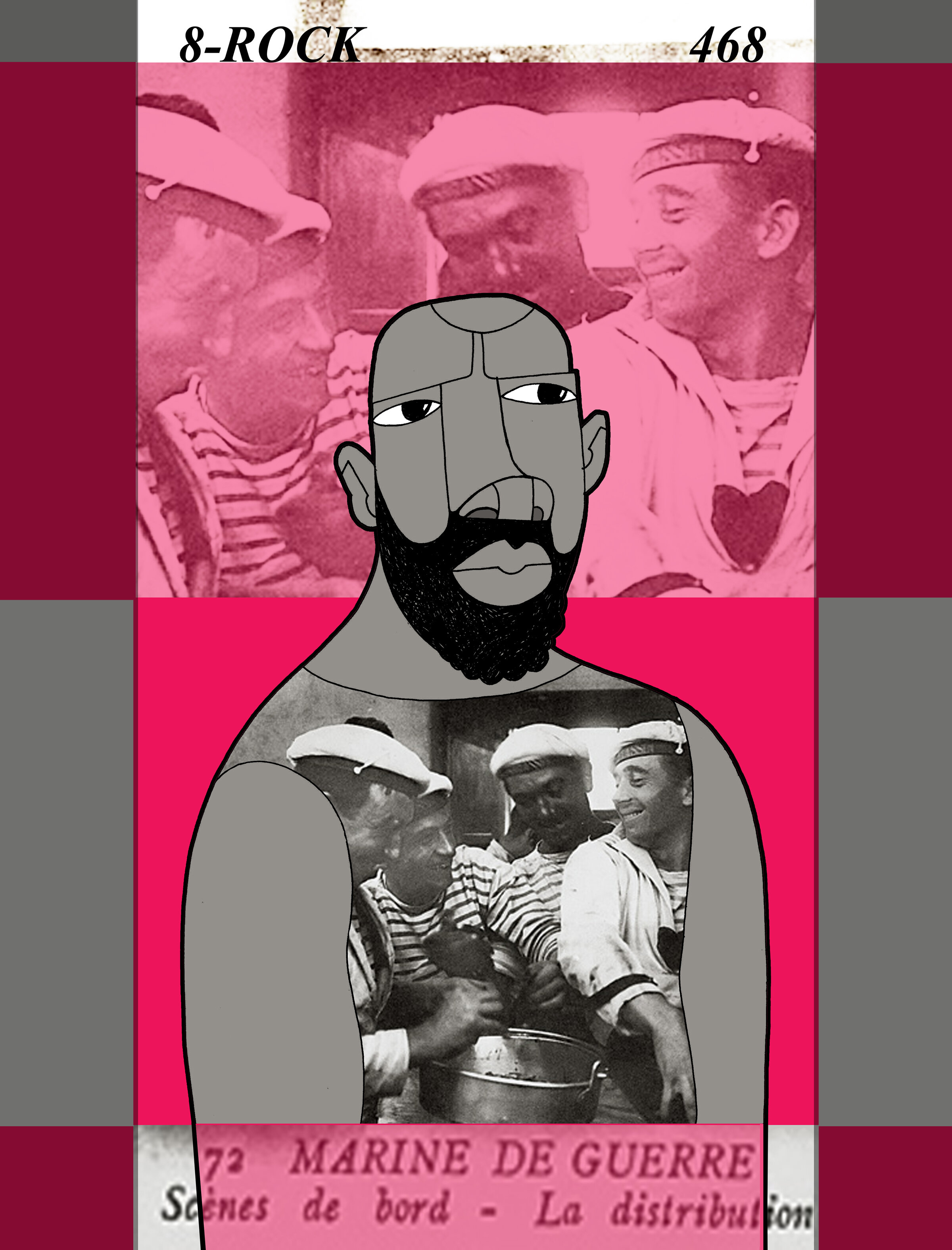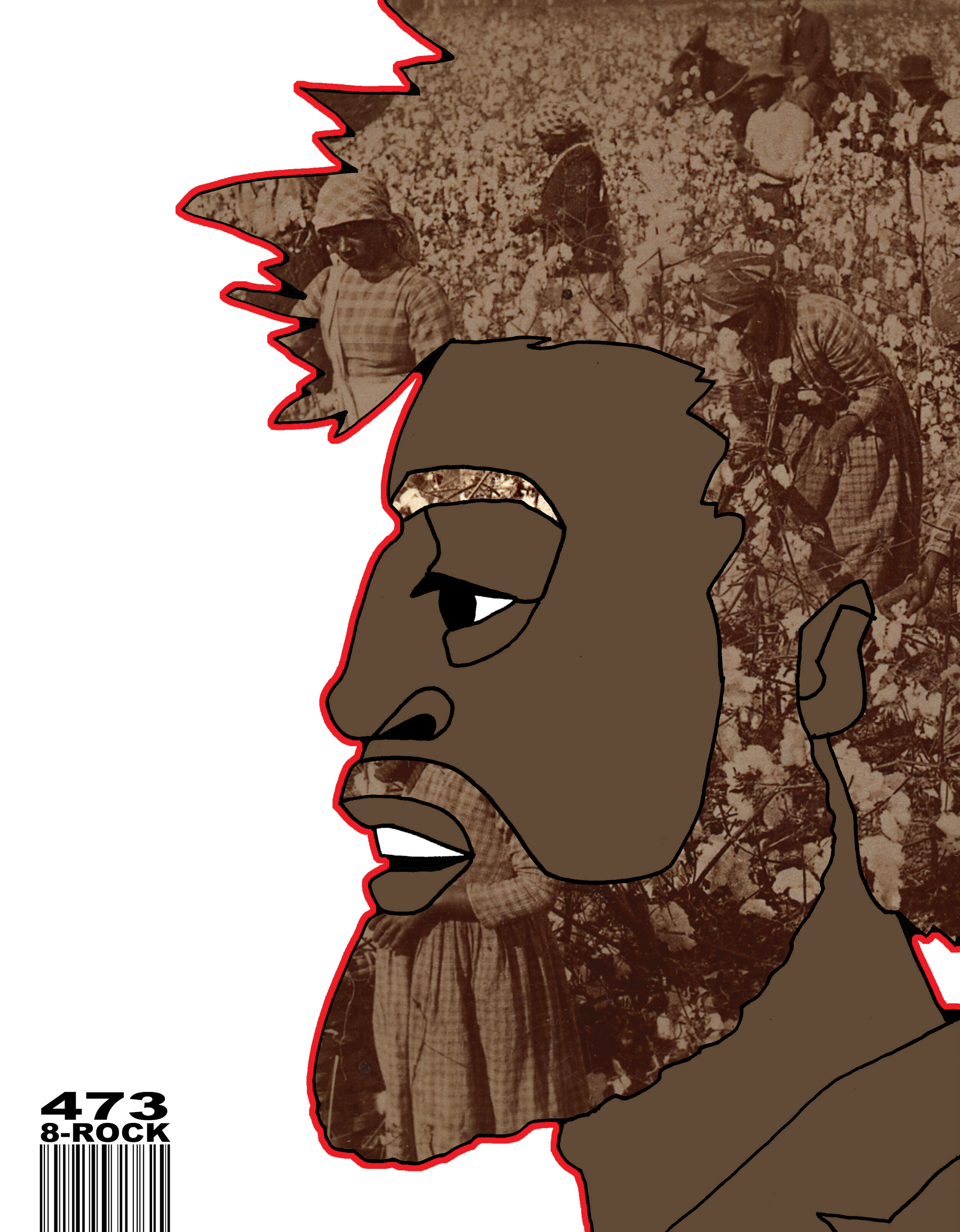Ajuan Muan: 1001 Black Men
3rd Floor Gallery
In the poem “Beautiful Black Men,” Nikki Giovanni describes her love for all types of Black men, explaining that, for her, they represent “the same old danger/but a brand new pleasure.” In 1001 Black Men, Ajuan Mance pushes past entrenched stereotypes and, drawing on both childhood memories and the faces she sees each day in Oakland, she creates images of Black men that reflect the wonderful complexity of African American lives: our history so deeply embedded in our present, our celebrations so often tempered by grief and, yes, the pleasure and danger we find in so many of the people, places, and activities that give us joy.
Beginning with a simple line drawing, black ink on paper, each sketch is an act of remembrance. With every shape drawn Mance conjures images–faces, expressions, gestures–stored up over a lifetime of looking at Black people. She uses permanent ink so that nothing offered can be taken back, calling up a face from the “amen corner” of her grandmother’s church, a smirk from the kid next door, or even her own curious gaze staring back from the rearview mirror. Not portraiture in the traditional sense, Ajuan Mance’s drawings are a record of her years of seeing Blackness–with its humor and sincerity, its vulnerability and defiance–portraying, if not an individual, then certainly a community. This project represents the artist’s public participation in the discussion around the limiting and stereotyped images of Black maleness and masculinity offered up in both mainstream and African American media outlets, and gives special attention to those identities within Blackness--elders, geeks and nerds, non-gender conforming and queer folks, and others--on whose silence and invisibility white supremacy and patriarchy depend. The bright, audacious colors move us beyond the limitations of what think we know about the Black subject, and into a realm of endless possibility and pleasure.
About the Artist: A professor of English at Mills College in Oakland, Ajuan Mance’s visual art is partly inspired by her teaching and research in African American literature and history. A lifelong artist, Mance has exhibited widely around the Bay Area and beyond.
